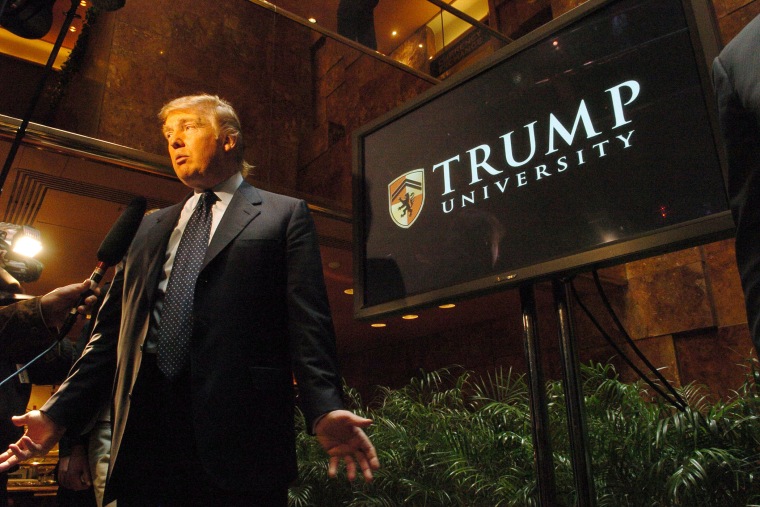Donald Trump has drawn the ire of lawmakers on both sides of the aisle after claiming that federal judge Gonzalo Curiel should recuse himself from presiding over a case involving Trump University. The presumptive Republican nominee claims that the Indiana-born judge, whose parents are Mexican immigrants, is biased against him because of Trump's policies on border security.
Republican leaders from House Speaker Paul Ryan to Trump supporter Newt Gingrich have come out strongly against the remarks. The backlash spurred Trump to issue a lengthy press release on Tuesday. But for all of Trump's defense of his much lambasted university in the statement, he did not address why Curiel would be unable to fairly serve as a judge in the case.
“I do not feel that one’s heritage makes them incapable of being impartial, but, based on the rulings that I have received in the Trump University civil case, I feel justified in questioning whether I am receiving a fair trial,” Trump wrote.
RELATED: Trump defends ‘misconstrued’ attacks on judge
From a legal perspective, every detail Trump offers in the statement relates to the merits of the final decision in this case — which affects whether he wins at trial in the future — not what the judge has done to date.
Trump basically highlights testimony, submitted in the case, for why he should win. There is conflicting testimony about what Trump University offered and whether its customers were satisfied with the product. In response, he offered examples of positive reviews of the school and said those were "just a few of literally thousands of positive surveys, all of which can be viewed online at www.98percentapproval.com.”
Despite the statement’s length, it did not offer evidence or specifics about why the judge’s administration of the case to date would show any bias.
Instead, it alleges there are “unfair and mistaken” rulings — but it does not list a single example to back up that claim. It would be worthwhile to question Trump on what specific rulings he is referencing — and if he can’t specifically name them, how does he know they raise a question of bias?
Trump seems unlikely to address any of those points, however, since he declared in Tuesday's statement that he does "not intend to comment on this matter any further. "
Parties in litigation typically disagree on the merits, as everyone knows, and they want judges and juries to side with them. But an allegation of judicial bias, or a request for recusal, goes far beyond that typical squabbling — it is a legal allegation that a judge’s record raises the kind of conflict or bias requiring removal. Such examples of such a bias would be having a financial stake in the outcome, for example, or an appeals judge having been involved in the lower court case.
Trump appears unable to offer that kind of support for his allegation, and the testimony regarding the merits of the case, while relevant to trial, is pretty much a distraction from assessing the accusations of judicial bias.
